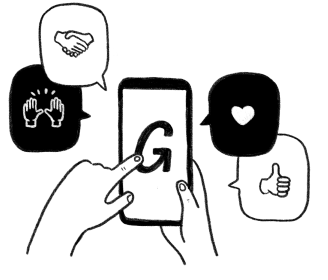Let’s Talk about Fibromyalgia in Men
We need to talk about fibromyalgia in men. While it is more commonly diagnosed in women, men experience fibromyalgia too and in this article we unpack some of the reasons why fewer men are diagnosed and what treatment options are available.
Disclaimer: We recognize that sex and gender are spectrums and strive to be fully inclusive and use gender-inclusive language. While we use "men/male" and "women/female" we acknowledge that trans and gender diverse individuals may also experience fibromyalgia and face stigma and many other challenges in healthcare and social settings.
This article is supported by current evidence and we call out known gender-based generalizations. Fibromyalgia experiences vary, and this piece highlights potential differences in men's and women's journeys.
We welcome your feedback and feel free to continue the conversation in our Living Well with Fibromyalgia Facebook community.
Fibromyalgia in men: how common is it?
It is estimated that around 2% of people have fibromyalgia, and, while the data varies, traditional sources report that 60-80% more women are diagnosed than men. That difference - is it because women get fibromyalgia more than men or is there something else going on?
Let's start with perceptions and beliefs. With these numbers often reported, there is a dogma that fibromyalgia is a women’s disease. This impacts men’s experience with fibromyalgia. And let's not forget the long history of societal, cultural, and contextual norms about how men should be and behave. These definitely affect men's health seeking behaviours1.
There is research pointing to some really interesting stuff...who we consider to “have” fibromyalgia makes a big difference. One study compared people diagnosed with fibromyalgia based on physician’s assessment (where the prevalence female:male was 60:40) with people who meet the criteria for fibromyalgia (based on randomly selected evaluation of patient symptoms against validated, published criteria). In this second group, the female:male prevalence was much closer to the expected gender distribution 60:40)2. Another study on the prevalence of fibromyalgia reported that men with symptoms meeting the criteria for fibromyalgia (regardless of a diagnosis) were identified as being 20 times higher than those with a clinical diagnosis, suggesting under-diagnosis of fibromyalgia in men3.
So this research suggests underestimation of fibromyalgia in men and an overestimation in women. Why might this be the case, you ask? Let's take a closer look.
Why are fewer men diagnosed with fibromyalgia?
Fewer men and more women are diagnosed with fibromyalgia for a number of reasons including:
- Bias and stigma. Females are more likely to self-refer for a fibromyalgia diagnosis than men. Due to gender stereotypes and society pressure, males may be reluctant to discuss pain related or mood symptoms4,5.
- Diagnostic criteria. Diagnosis on the basis of pain (particularly using tender points) are likely to be biased towards women and physicians are more likely to think of and to diagnose fibromyalgia in women than in men6,7.
- Underlying causes. There is some disparity between the way women and men might experience (and be exposed to) some of the underlying causes of fibromyalgia such as stress and trauma.
- Autoimmune disorders: Women are more prone to autoimmune diseases, and while fibromyalgia is not an autoimmune disease, it often co-exists with autoimmune conditions like rheumatoid arthritis and lupus.
The higher prevalence of fibromyalgia in women remains a subject of ongoing research.
Knowledge is power

Fibromyalgia symptoms in men
Fibromyalgia in men presents with familiar symptoms of fibromyalgia. However there are some symptoms and impacts that may be more prevalent - many are related to gender-based stigma including stereotypes of masculinity8 - all which can make their fibromyalgia symptoms worse through increasing severity, isolation, stress and mental health impacts9.
Fibromyalgia symptoms in men include:
- Widespread pain
- Fatigue and brain fog
- Depression and mental health impacts
- Sleep disturbances
- Decreased quality of life (particularly around work and relationships)
- Sensory hypersensitivity
The research is mixed on gender differences in the presentation of symptoms and the lack of data around the experiences of men living with fibro (due to gender and selection bias in research) suggests more detailed research is required.
A case study - what fibromyalgia in men is really like
The experience of men with fibromyalgia is best understood hearing from someone living with the condition.
I have had to re-evaluate my entire idea of what it is to be a man. As a young adult, one of the very typical things for someone to feel like they're a man have a masculine body, and I had to resign myself to the fact that I was potentially never going to be able to go to the gym or build muscle in the same a lot of guys can. It was really tough to accept that for quite a few years because, you know, I was around 20 years old and I was struggling to go out partying and stay up as late as some of my friends and most other guys my age. I realized I am quite different to a lot of my friends and I was not able to have the same experiences.
So I thought to myself, if I can't do those things, there's surely things that I can still do for myself. And so I did a lot of soul searching. The big thing was re-evaluating for me what a man is and I realized I had a quite misconstrued idea of what a man is anyway. So I decided to invest in things like philosophy, spirituality, knowledge, and stuff like that because those were things that I could control.
One of the biggest things I've learned and that I would tell myself or another young male have faith in yourself and trust your body a bit more than it feels because I've learned over the years that the body is capable of adapting to some pretty crazy things and fibro it can absolutely adapt to and you can work with.
- Bailey, mid 20s, male
Living well with fibromyalgia for men
Here are some of our top tips for living well with fibro (and yes, they relate to anyone but these ones we have chosen specifically for men):
- Mindset: There are many things within your control, you can manage your fibromyalgia symptoms and reduce the impact on your physical and mental health. Fibromyalgia does not need to define you.
- Don't push through or ignore it. Fibro is not something you can push through, it requires rest, patience and care. Pacing is your best approach.
- Understand fibromyalgia: Familiarize yourself with the condition - the symptoms, triggers, and the nature of fibromyalgia can empower you to manage it better. Remember, fibromyalgia is not a women's disease and you might want to read some of the references below for gender based studies.
- Build your team. It can be helpful to build a team around you (selected family, friends, co-workers, or clinicians) and let them know what you are going through and how they can help. An understanding and informed support coach (like the ones in our MoreGoodDays® foundational program) could be just what you need.
- Keep moving. Research shows that light movement that makes you feel good has lots of benefits on your symptoms and mood.
- Advocate for awareness. Becoming an advocate - for yourself and your needs in healthcare settings but also perhaps for broader fibromyalgia awareness around shifting public perception and reducing stigma.
Read here for more evidence-based approaches to living well with fibromyalgia.
Support is available
So, guys, if you are reading this and want some help, we are here for you and we understand. Our MoreGoodDays® program will help you understand your fibromyalgia symptoms, how you can manage them using science backed tools so you can get back to living your life. For more information and ideas for managing these and other symptoms of fibromyalgia, consider checking your suitability.
If any of the content of this article has raised concerns for you and you need immediate assistance, please contact:
- Lifeline - Free Australia-wide crisis support and suicide prevention service. 13 11 14 (24 hours, every day) or Text 0477 131 114 (24 hours, every day)
- Beyond Blue - Free mental health and wellbeing information and support for all in Australia. 1300 22 4636 (24 hours, every day)
- Blue Knot Foundation Helpline - Information, support or referral for adult survivors of childhood trauma and abuse. 1300 657 380 (9am to 5pm, every day)
- See here for a full international list of Crisis Support Helplines








